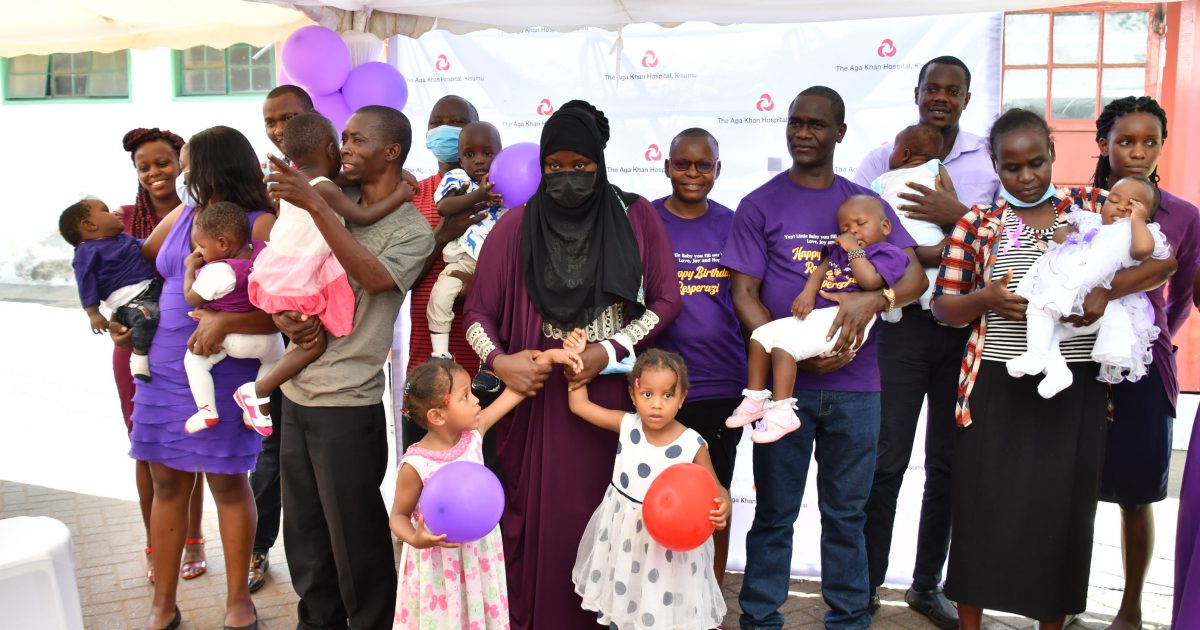The government has been urged to partner with the private sector to develop the necessary infrastructure to handle rising cases of preterm births in the country.
Approximately one out of 10 babies are born preterm each year with a good number of them dying while the rest are exposed to lifelong health challenges.

Dr Juma Oduor, lead obstetrician gynaecologist at Agha Khan Hospital Kisumu said the rise in numbers which is caused by both spontaneous and medical conditions was of great concern.
Management of premature births, he said, continues to pose a big challenge to parents and medical personnel given the high costs involved. “Management of a single case depending on the condition of the baby is not easy and can cost millions of shillings,” he said.
Preterm birth, he disclosed, remains the leading cause of prenatal mortality and morbidity in the country calling for concerted efforts within the health sector to reverse the tide.
The infrastructure across major facilities in the country, he said, was not at par with the huge number of children born preterm, calling for partnership between the government and private sector to enhance access to quality medical care.
Agha Khan Hospital, he said has partnered with the government to train specialised doctors and medical personnel at the same time facilitate equipment sharing to help address the gaps.
“This partnership is very critical to enhance access to quality care especially in regions that don’t have adequate health facilities,” he added.
Speaking at Agha Khan Hospital in Kisumu during the World Prematurity Day celebrations, Dr Juma disclosed that the facility has introduced a specialised clinic for expectant mothers every Monday to identify any threats likely to affect pregnancy.
This, he said, was a long term measure to curb the rising number of preterm births since the mothers are closely examined and quick decisions made to avert loss of life. The hospital, he added, has invested in modern equipment to address major challenges affecting preterm babies.
“We have invested heavily in equipment and training of medical personnel to address breathing and nutrition challenges facing preterm babies among other threats,” he said.
Susan Osewe who is in charge of Maternal, Neonatal and Child Health at Agha Khan Hospital, Kisumu said plans were underway to establish a neonatal Intensive Care Unit (ICU) at the facility to handle complex conditions resulting from preterm births.
The focus of this year’s World Prematurity Day celebrations, she said, is on zero separation of parents and babies born preterm.
The duration when the two are separated, she said was unhealthy for the baby adding that the two must be given time to bond and communicate while the baby is being attended to at the nursery.
Mothers, she added, were being asked to have skin to skin contact (kangaroo) with their babies during this period at the same time start early breast feeding to enhance survival of the babies.
Dr Sarafina Ekeno, a paediatrician at the facility said 30% of babies born preterm develop lifelong complications.
She pointed out hearing impairment, cerebral palsy, sight and lung infections and neurodevelopment issues as among the leading complications. This, she said, has strained families and relationships calling for concerted efforts within the health sector to address existing gaps.
Rose Obae, a first time mother who delivered a preterm baby at 34 weeks said she underwent many challenges while in hospital and at home.
“It is painful to see others deliver and go home with their children while you are stuck at the facility watching over an underweight baby in a nursery,” she said.
Stigma, she added, was a big challenge for mothers who deliver prematurely because the society heaps the fault on them.
“I was told how it was my fault that I was not eating well. That is why the child was delivered prematurely and was underweight yet I did everything as advised by my doctors,” she said.
By Chris Mahandara and Debbie Naomi




